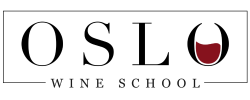Dette nettstedet bruker informasjonskapsler for å fungere korrekt, analysere trafikk, personalisering av annonser og annonsering.
Powered by

Powered by

Juster innstillingene
Om informasjonskapsler på dette nettstedet
Dette nettstedet bruker informasjonskapsler for å fungere korrekt, analysere trafikk, personalisering av annonser og annonsering.
Informasjonskapsler som brukes på nettstedet, er kategorisert, og nedenfor kan du lese om hver kategori og tillate eller avslå noen eller alle av dem. Når kategorier som tidligere er tillatt, deaktiveres, vil alle informasjonskapsler som er tilordnet denne kategorien, bli fjernet fra nettleseren din. I tillegg kan du se en liste over informasjonskapsler som er tilordnet hver kategori, og detaljert informasjon i vår Personvernerklæring.
Nødvendig
Analyse
Markedsføring
Målrettet
Egendefinert
Powered by








